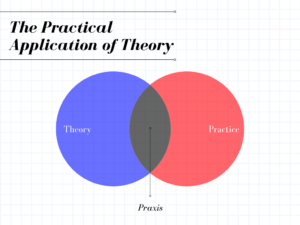Are You Qualified to Host a Learning Community?

The host of a learning community must be perceived by members as being a credible guide to a desired destination. That perception is sensitive to context.
Learning Communities are Purposeful
People voluntarily join learning communities in order to achieve personal transformation. They want to become something new:
- A more successful business development rainmaker
- A more effective university teacher
- A better storyteller
Learning communities, perhaps by definition, are purposeful. A learning community’s members work together in their journey to the “promised land.” They also want and need a guide.
Community Hosts Wield Authority
In order to help members get to where they want to go, a community host is responsible for community and conversation design:
- She must articulate the purpose of the community, which defines who belongs.
- She must design the “space” in which members converse as well as the agenda, structures, and processes through which members engage with ideas and each other.
In other words, the host must practice what Priya Parker calls, “generous authority.” But under what conditions will members be willing to defer to such authority?
Requisites for a Host
There are three requisites for hosting a learning community:
- The host must be a recognized member of the community.
- The host must have deep, practical experience.
- The host must be able to articulate a coherent theoretical framework.
Community Members
Hosts can be mentors, teachers, and facilitators. But not all skilled mentors, teachers, and facilitators can be hosts. For example, during the course of our professional lives, we principals of Human Scale Business have developed some expertise in domains relevant to e-commerce. However, we don’t have experience owning an e-commerce store. Andrew Youderian, however, does. That’s just one reason why he can be the credible host of the eCommerceFuel community, and we can’t.
Trailblazers
While community membership is necessary, it’s insufficient. A host must also be recognized as a trailblazer of sorts—someone who is out in front on the journey to the promised land. He is a fellow traveler, perhaps, but also someone who has personal experience navigating the terrain ahead.
Tom McMakin and Jacob Parks have played key roles in building their company, Profitable Ideas Exchange, from 5 to 50 people. They’re members of the broad community of expert services and consulting professionals. They have deep, practical experience in business development as it relates to small-to-medium-sized firms. They can facilitate, advise, and teach executives at large consulting firms, but they are qualified to host a community consisting of leaders of smaller firms.
Map Makers
Finally, a qualified host is a special kind of trailblazer—one who was thoughtful enough to have drawn a map. Mario Schulzke is an experienced and highly regarded marketer who currently serves as the Chief Marketing Officer of Geniuslink. In addition to his stint as the University of Montana’s CMO, Mario also serves as an Adjunct Associate Professor. Furthermore, he’s an entrepreneur—the founder of IdeaMensch. Mario can share stories and provide the theoretical framework for explaining how, why, and under what circumstances marketing strategies and tactics work. That’s what makes him qualified to host the upcoming Common Sense Marketing community focused on marketing strategy for leaders of small businesses and nonprofits.
Hosts Are Engaged in Praxis
Jeff Linkenbach, another host, taught us a five-dollar word not long ago: praxis. Praxis means the practical application of theory. In order to be a compellingly credible host, one must be engaged in praxis.
 Having a deep theoretical understanding of a topic isn’t enough, but neither is a collection of unstructured experiences. Members of a learning community want to be guided by someone who knows which roads lead to the promised land and can draw you a map. Put a little differently—a qualified host may or may not have written the book on the subject, but she could.
Having a deep theoretical understanding of a topic isn’t enough, but neither is a collection of unstructured experiences. Members of a learning community want to be guided by someone who knows which roads lead to the promised land and can draw you a map. Put a little differently—a qualified host may or may not have written the book on the subject, but she could.
Context Matters
It’s somewhat ironic that the sense of community can be so personal and subtle. For instance, consider heavy metal music. It consists of more than two dozen sub-genres including speed, symphonic, doom, metalcore, gothic, grindcore, and progressive metal. Doom metal, itself, is further delineated into death, drone, sludge, and stoner niches. Outsiders might not be able to distinguish one genre from the other, but members of the related communities certainly can. That means a recognized expert in one sub-genre may not be as highly regarded by members of another.
As our friend and business development expert, Tom McMakin, says, “Shrink the pond,” to create differentiation. The same is true for learning communities. A narrowly focused learning community will tend to elicit greater passion than a broadly encompassing community. Focus can also make it more demanding to fulfill the requirements of being a host. Successful learning communities, like eCommerceFuel, are highly focused (owners of seven-figure e-commerce stores) and have qualified hosts, like Andrew Youderian.
